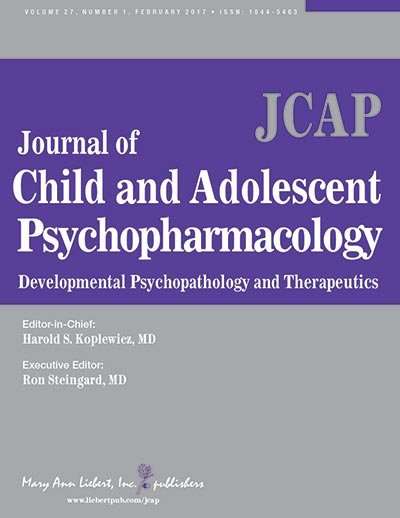Credit: Mary Ann Liebert, Inc., publishers
New studies in children and adolescents with major depressive disorder (MDD) reported negative outcomes, failing to support the effectiveness of desvenlafaxine (Pristiq, Pfizer) compared to placebo. The new research, which demonstrated the lack of efficacy of desvenlafaxine in young people with MDD, is published in Journal of Child and Adolescent Psychopharmacology.
In the article "Desvenlafaxine Versus Placebo in the Treatment of Children and Adolescents with Major Depressive Disorder," Sarah Atkinson, MD, Finger Lakes Clinical Research (Rochester, NY), and coauthors from Pfizer (Collegeville, PA; Groton, CT; and New York, NY), Johns Hopkins University and Kennedy Krieger Institute (Baltimore, MD) showed that neither a low nor a high dose of desvenlafaxine was significantly more effective than placebo in treating MDD in children and adolescents.
A similar finding of non-efficacy was reported in the article entitled "Desvenlafaxine vs Placebo in a Fluoxetine-Referenced Study of Children and Adolescents with Major Depressive Disorder." Karen Weihs, MD, University of Arizona (Tucson) and coauthors from Psychiatric Associates (Overland Park, KS) and Pfizer (Collegeville, PA; Groton, CT; and New York, NY) showed that after 8 weeks of treatment with 25-50 mg/day of desvenlafaxine, children and adolescents did not have significantly improved scores on a depression rating scale than did study participants receiving placebo or the reference medication fluoxetine.
Robert Findling, MD, MBA, Johns Hopkins University and the Kennedy Krieger Institute (Baltimore, MD) and colleagues from Children's National Health System (Washington, DC), Cincinnati Children's Hospital Medical Center (OH), Medical University, Clinical for Children and Adolescent Psychiatry and Psychotherapy (Mainz, Germany), University Hospitals Cleveland Case Medical Center (OH), Sarkis Family Psychiatry (Gainesville, FL), Kansas University School of Medicine (Wichita), H. Lundbeck (Valby, Denmark), and Takeda Pharmaceuticals (Deerfield, IL) coauthored the article entitled "A 6-Month Open-Label Extension Study of Vortioxetine in Pediatric Patients with Depressive or Anxiety Disorders." In this study, researchers evaluated the effects of the drug vortioxetine (Trintellix, Takeda) and were able to confirm earlier findings that a 5-20 mg/day dose is safe and well tolerated in children and adolescents.
"Negative studies are essential for improving the psychopharmacological treatment of mental health disorders in children and adolescents. Knowing what's not effective may be as important as knowing what agents or compounds are effective," says Harold S. Koplewicz, MD, editor in chief of the Journal of Child and Adolescent Psychopharmacology and President of the Child Mind Institute in New York.
More information: Sarah Atkinson et al, Desvenlafaxine Versus Placebo in the Treatment of Children and Adolescents with Major Depressive Disorder, Journal of Child and Adolescent Psychopharmacology (2017). DOI: 10.1089/cap.2017.0099
Provided by Mary Ann Liebert, Inc























